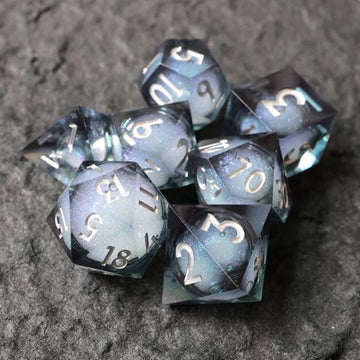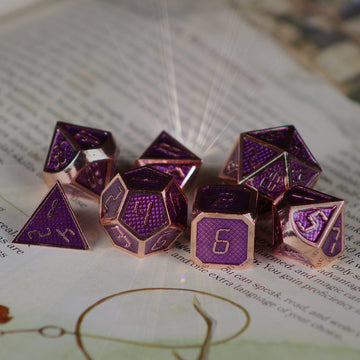At a high level, many D&D campaigns tend to take after the Lord of the Rings, or the Dragonlance Chronicles, or countless other high fantasy sagas. They are at their heart a fellowship of travelers and heroes, wandering the land fighting a great evil, or righting many smaller wrongs.
The characters in these games usually have some kind of back story about where they came from, and perhaps they even have a theoretical family at some nameless village or forest. But the group really has no home: they are just wanderers. From city to city, from dungeon to necropolis, they stay at inns and camps at the side of the forest trail.
As a result it’s incredibly hard to get the players to really care about any place or anyone other than their own group. Perhaps the players come to a village where children were abducted in the middle of the night, or the farmers are being killed by a strange monster — the players recognize it as a plot hook and something they should fight to make right, but they don’t really care about farmer Jim or Jilly the baker’s missing children. And of course they don’t: they just heard about these people for the first time that night.
We care about people that we know, that we see again and again over time, who we’ve interacted with countless times. This, I think, is the secret to massively improving your D&D campaign.
Create a Home
Give your players a home, a base of operations. Rather than endlessly wandering the world, give them a manor or inn that they work out of. It could be a castle tower or dilapidated shack in a small village, as long as it’s someplace with some semblance of civilization. You need a world of people that they interact with regularly to really give the sense of home, as well as a place that is theirs.
The characters can slowly get to know their neighbors between adventures, and can come to feel a sense of ownership over their home.
I think this is probably best explained by example:
A Campaign with a Home
In my most recent Pathfinder campaign the characters were based out of a large city. After their first couple nights and doing some deeds that got the attention of people in the city, they had to decide where they were going to live in the city. The inns of the city actively courted bands of adventurers, because having them around the taproom was good for business, so the characters got to go to all the major inns in the city that didn’t already have an adventuring group stationed there and try to make the best deal — free rooms were a given, but free food, drink, number and size of rooms, and how often the characters had to be around were all negotiated.
Perhaps Mama Butters’ Kitchen & Respite offered the best food and as much free food as the characters could want, in addition to rooms; but everything was halfling sized and it didn’t lend a lot to a fiercesome reputation. Fat Wot’s was huge and the characters could get a whole wing to themselves since Wot built far too large, but the place was decrepit and the food was terrible as Wot struggled to get by. Perhaps one innkeeper would give them a cut of the taproom profits for any night they stayed in and told stories; perhaps another had a brother who was an armorer and would give the characters a discount. Each inn had different advantages and disadvantages, and the characters could (and did) try to wheedle and fast talk their way into better deals for themselves.
Now settled in the inn of their choice, between each adventure the character’s came back and hung out with the same NPCs each time: the owner, the manager, the cook, the barmaids, the regulars, the rival adventuring bands vying for the best reputation. They got to really know all these NPCs, to like them and hate them. They came to expect improvements to the establishment when they were gone for a while, and actively invested in the reputation and even improves to “their” inn.
Now imagine the difference in a simple plot hook: they discover that their favorite barmaid was kidnapped, or perhaps killed by orcs. This isn’t just a random NPC anymore. They know that character, they heard stories about her kids and know that her sister was learning to be a cook. They saw her every time they came back and fended off drunken customers on her behalf. Now it’s more than a plot hook — the players are furious, they are swearing bloody vengeance.
Suddenly it matters in way that is about more than gold and experience points.
A Home Makes Players Care More
So that’s my argument and my best advice to make your next D&D campaign ten times better, and to make your players more attached to the game. Give them a home and carve out a couple hours of game time every time they return to let them interact with the characters in that home.
You can create plot hooks around their home, and the players will be more engaged in the game overall. Give them a chance to care about the NPCs and in the end that home will give them something to fight for.






